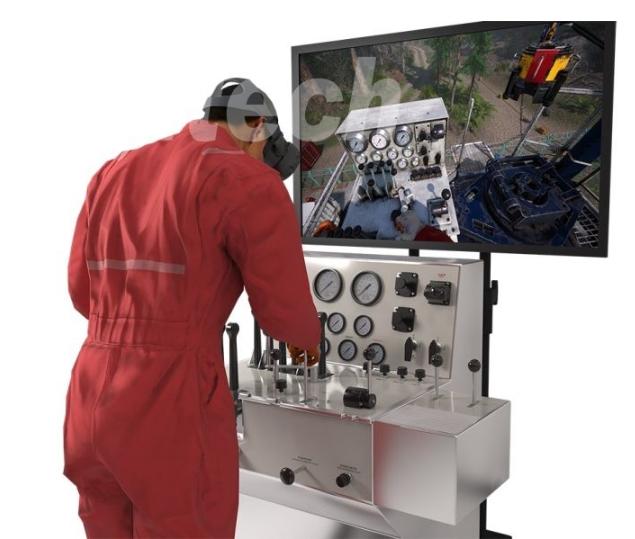The oil and gas industry is a complex and high-risk environment. Training personnel to handle various drilling scenarios is crucial to ensure operational safety and efficiency. Traditional on-the-job training methods, while valuable, can be costly, time-consuming, and potentially dangerous. In recent years, drilling simulators have emerged as a viable and effective alternative. This blog post will explore the economic benefits of using simulators for oil and gas drilling training.
Reduced Training Costs
Initial Investment: While simulators require an upfront investment, the long-term cost savings can be substantial.
Consumable Costs: Simulators eliminate the need for fuel, drilling mud, and other consumables used in real-world drilling operations.
Equipment Damage: Accidents and equipment damage can be costly in real-world training scenarios. Simulators provide a safe environment to practice without incurring such losses.
Increased Training Efficiency
Controlled Environment: Simulators offer a controlled environment where trainees can focus on specific drilling scenarios and techniques without the distractions of real-world operations.
Repeated Drills: Trainees can practice the same drill several times to improve their skills and confidence.
Scenario Customization: Simulators can be customized to simulate a wide range of drilling conditions, allowing trainees to experience different challenges and develop problem-solving skills.
Improved Safety
Risk Reduction: Simulators provide a safe space for trainees to learn and make mistakes without endangering themselves or others.
Emergency Preparedness: Trainees can practice responding to emergency situations in a controlled environment, improving their ability to handle crises effectively.
Compliance: Simulators can help companies comply with safety regulations by ensuring that personnel are adequately trained and prepared to handle potential hazards.
Enhanced Skill Development
Hands-On Experience: Simulators offer a hands-on learning experience that can help trainees develop the skills and knowledge needed to succeed in the oil and gas industry.
Problem-Solving: Trainees can learn to identify and solve problems in a simulated environment, improving their critical thinking and decision-making abilities.
Confidence Building: Successful training on simulators can boost trainees' confidence and prepare them for real-world drilling operations.
Return on Investment (ROI)
While the initial investment in a drilling simulator may seem significant, the long-term benefits can outweigh the costs. By reducing training expenses, improving safety, and enhancing skill development, simulators can provide a positive ROI for oil and gas companies.
In conclusion, drilling simulators offer a cost-effective, efficient, and safe way to train oil and gas personnel. By investing in simulators, companies can improve operational performance, reduce risks, and enhance the overall effectiveness of their workforce.

